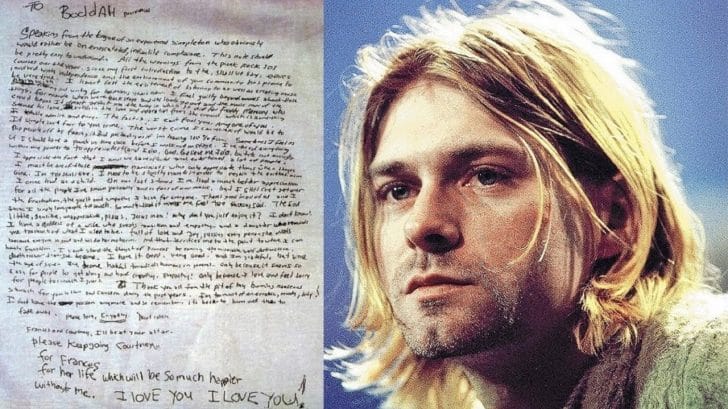The late Nirvana frontman Kurt Cobain and late Queen frontman Freddie Mercury left an indelible mark on the music industry during their short but impactful careers. Despite their shared status as iconic rock frontmen, Cobain and Mercury possessed contrasting personalities and attitudes. It is within this dichotomy that Cobain referenced Freddie Mercury in his heartbreaking suicide note, highlighting the qualities and experiences he felt he lacked.
Kurt Cobain, known for his angst-ridden songwriting, anti-establishment persona, and battles with depression, was no stranger to mental health struggles. These challenges, coupled with his well-documented struggles with substance abuse, left him in a perpetual state of emotional turmoil. The singer’s suicidal tendencies were evident through multiple attempts on his own life. Following one such attempt, Cobain was hospitalized and subsequently released after a five-day treatment period. He returned home briefly before fleeing from a rehabilitation center, ultimately ending up at his Seattle residence.
It was on April 8, 1994, that the tragic discovery of Cobain’s lifeless body was made by an electrician at his home. The autopsy revealed that the Nirvana frontman had taken his own life with a shotgun blast on April 5, at the young age of 27. Heroin was also found in his system. Left behind was a suicide note, ultimately confirmed to be Cobain’s handwriting, which shed light on the inner turmoil that plagued him.
Addressed to his childhood imaginary friend, Boddah, the note primarily centered around Cobain’s diminishing sense of joy and fulfillment from creating music—the very thing that connected him to the world. Cobain’s words evoked a sense of desolation and revealed a profound lack of satisfaction that consumed his will to live.
Within the note, Cobain mentioned Freddie Mercury as a point of comparison. He alluded to Mercury’s ability to revel in the love and adoration showered upon him by audiences. The Queen frontman’s seemingly boundless enthusiasm and appreciation for the crowd’s adulation were qualities that Cobain admired and envied. It was this disparity—the absence of the rush and inspiration that Mercury experienced—that weighed heavily on Cobain’s state of mind and ultimately led to his tragic decision.
Cobain’s poignant words regarding Mercury in the suicide note read:
“For example, when we’re backstage and the lights go out and the manic roar of the crowds begins, it doesn’t affect me the way in which it did for Freddie Mercury, who seemed to love, relish in the love and adoration from the crowd, which is something I totally admire and envy.”
Cobain went on to express his inability to deceive his audience or himself, acknowledging that pretending to have 100% enjoyment on stage would be disingenuous and unfair to both parties involved. He shared his struggles with finding fulfillment in the performance aspect of his life, stating that he had tried everything within his power to appreciate it, but it fell short. His final words painted a picture of a tortured artist, desperate to recapture the joy that seemed to come effortlessly to others.
While Kurt Cobain’s decision to take his own life undoubtedly had complex underlying causes, his mention of Freddie Mercury in his suicide note provided a glimpse into the depths of his despair. The note served as a somber testament to the inner struggles Cobain faced, particularly his inability to find the same joy and satisfaction in music as his revered counterpart.
Despite the tragic circumstances surrounding Cobain’s death, his fans continue to mourn the loss of a brilliant musician. Ironically, his suicide note offers a partial understanding of the profound emotions he experienced. It stands as a poignant reminder of the challenges faced by individuals who may appear to have it all,

